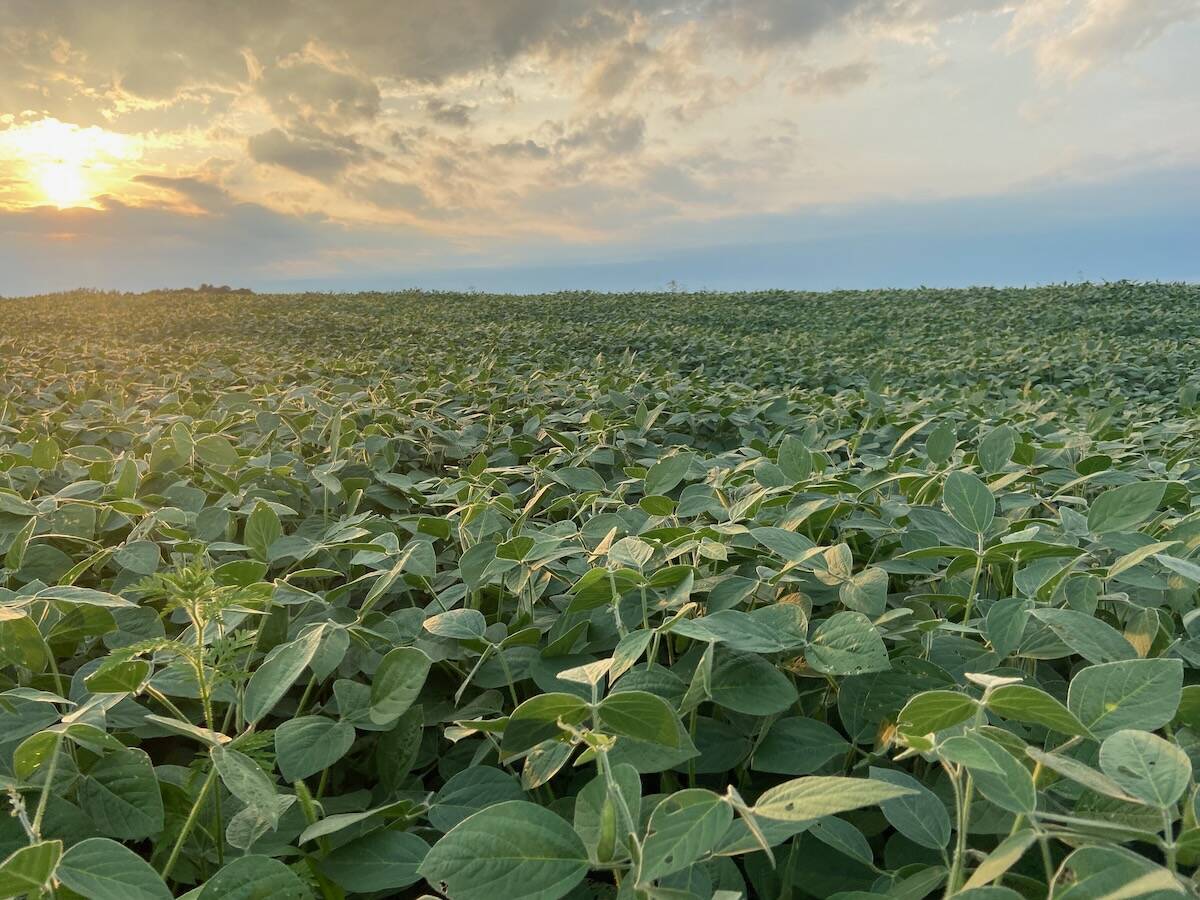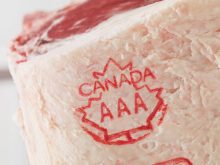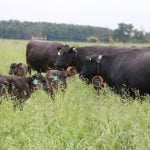The Manitoba government has laid the latest brick in their defence plan against the economic fallout of Canada’s ongoing trade war; this one targeted at agriculture.
Speaking at the Royal Manitoba Winter Fair in early April, and then later in the day at Brandon’s Maple Leaf Foods, Premier Wab Kinew said the province would be bolstering the safety net offered by agricultural business risk management programs.
The announcement cited more than $150 million in provincial funds, including $10 million to match federal AgriStability funding and $140.8 million for other programs such as AgriInvest, AgriInsurance and wildlife damage compensation.
Read Also

Weed resistance closes in on glufosinate
Expanded soybean acres and tighter application windows have eroded buffers that have so far protected Liberty herbicide on Prairie farms
“Our government is working hard to ensure that ag, which is the backbone of our provincial economy, is going to be able to weather the current economic challenges,” he said.
WHY IT MATTERS: Manitoba, along with other provinces and Canada in general, is looking to limit the hit from tariffs flying from both the United States and China, both major trading partners for Canadian agriculture.
The announcement comes on top of $100 million for agricultural support and tariff resilience laid out in the 2025 Manitoba budget earlier this year, Kinew noted.
The announcement came as Canadians had their eyes glued to any news coming out of the White House. A month-long exemption, which spared Canadian goods compliant with the Canada-U.S.-Mexico Agreement from the U.S.’s 25 per cent tariffs, was also set to expire April 2 at the same time U.S. President Donald Trump was expected to unveil sweeping tariffs on U.S. imports in general.
When the news came, though, little changed for Canadian agriculture compared to conditions they had been operating under since March 6.
Canada and Mexico were exempted from newly unveiled 10 per cent global tariffs for the time being. Existing tariffs the U.S. had in place against its CUSMA partners, however — incuding 25 per cent against Canadian steel and aluminum and 10 per cent against Canadian energy and potash and levies in the automobile sector — remained in place, as did the exemption for CUSMA-compliant goods.
In 2023, Canada’s trade with the U.S. was valued at nearly $968.4 billion, with $594.8 billion in Canadian exports and $373.6 billion in imports from the U.S., resulting in a trade surplus of $221.1 billion, according to Statistics Canada. In 2024, Canada’s merchandise exports to the U.S. reached $596.2 billion, with a trade surplus of $124.9 billion, largely due to energy exports.
The U.S. also took 46.3 per cent of Manitoba’s agri-food exports in 2024, with canola oil, frozen potatoes and canola meal being the top southbound exports.

Farm groups look for footing
The ongoing trade war has been a major topic of discussion for Manitoba farm groups, particularly in talks between the province and Keystone Agricultural Producers (KAP).
The general farm group brought forward suggestions how the government could support agriculture through the trying trade times. Those included addressing regulatory hurdles that limit growth in value-added food processing in the province, pushing Manitoba trade — including work with other provinces and key trading partner states in the U.S. — advocating to the federal government, working to deliver policies and investments in value-added processing, improvements to business risk management programs and access to the capital.
“We thought long and hard on it, about it, and we’re going to do every single thing that KAP has brought forward,” Kinew said.

KAP says it also plans to collaborate with Ottawa on policy development and investments in programs that enhance producers’ access to capital, ensuring they remain competitive.
Manitoba’s pork industry is particularly vulnerable in a trade war with both the U.S. and China, Kinew noted at the Royal Manitoba Winter Fair’s 2025 Pork Quality Competition April 2.
The U.S. and China are top markets for pork, as well as commodities like canola. In mid-March, China announced its own 100 per cent tariffs against Canadian canola meal and oil, as well as peas, along with a 25 per cent duty on pork and aquatic products.
Pork was Manitoba’s fourth-largest agri-food export to the U.S. last year, according to statistics from Manitoba Agriculture, representing about $247 million. Another $153 million worth went to China.
For live pigs, of which the province is a major player in Canadian trade, almost all the $233 million worth of live pigs exported from Manitoba were bound for the U.S.
Manitoba Pork is pleased to see the province investing into protections for the agricultural industry, said chair Rick Préjet.
“We know we’re going through some trying times right now but, again, we appreciate the support we’ve had from our government here in Manitoba,” Préjet said at the pork competition. “The resilience of our sector is being tested. The threat of tariffs and economic uncertainty put a strain on our producers, and on our economy.”
The tariffs against Canada will also hurt Americans, many who voted Trump into office again, since Canada and the U.S.’s agriculture sectors — particularly the pork industry — are highly integrated, he added.
“The thing that Donald Trump needs to understand is that the weanling starts his life here in Manitoba, and then it crosses the border, right? And then it’s a pork producer in Iowa who is raising the pig. At the same time, when we talk about a company like Maple Leaf with some of our other packagers in Manitoba, we’re talking about vertical integration, and every step along that supply chain can see goods moving back and forth across the board,” he said.
“It doesn’t make sense. It doesn’t make sense for us as Canadians and, once the people who voted for Donald Trump start to pay attention to what’s happening, they’re going to be pretty upset.”

Industry takes trade action
Beyond provincial efforts, Kinew praised the work being done by Manitoba producers to protect trade relationships in the U.S.
“Manitoba Pork and many folks in this room have been doing a lot of efforts, travelling south of the border, making the case to people in Iowa, North Dakota and some other big ag trade (states),” he said.
This combined collabortation of government, industry groups and producers will have a positive effect on the trade war, Kinew believes.
“When Trump starts to feel the impact of people being upset at the grocery store, at the gas station, that’s how they’re going to start to see a shift in policy and back towards a strong trading relationship between our country and our closest neighbour and ally in the United States of America. So, let’s keep working together on that,” he said.
Kinew said the funds will help insulate agriculture against tariff shocks and give the economy time to adjust.
He also pointed to potential trade in other, non-U.S. international markets.
“We’re always going to be neighbours to the United States of America. We would love to trade with them, but in order to keep faithful workers coming every day to this great facility, we have to build up the Canadian market,” he said, standing outside of Maple Leaf Foods.
Some of those alternative markets might involve leaning more on Japan, South Korea, and the European Union, he added.
















